Birth Certificate Samples
-
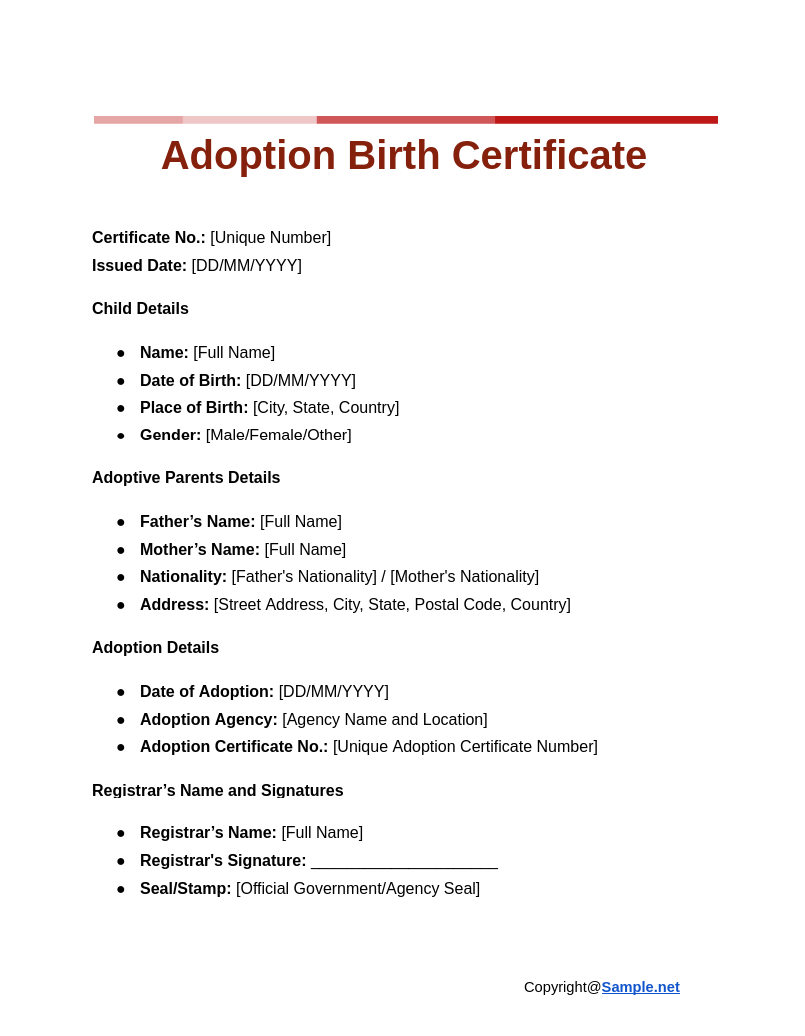
Adoption Birth Certificate
download now -
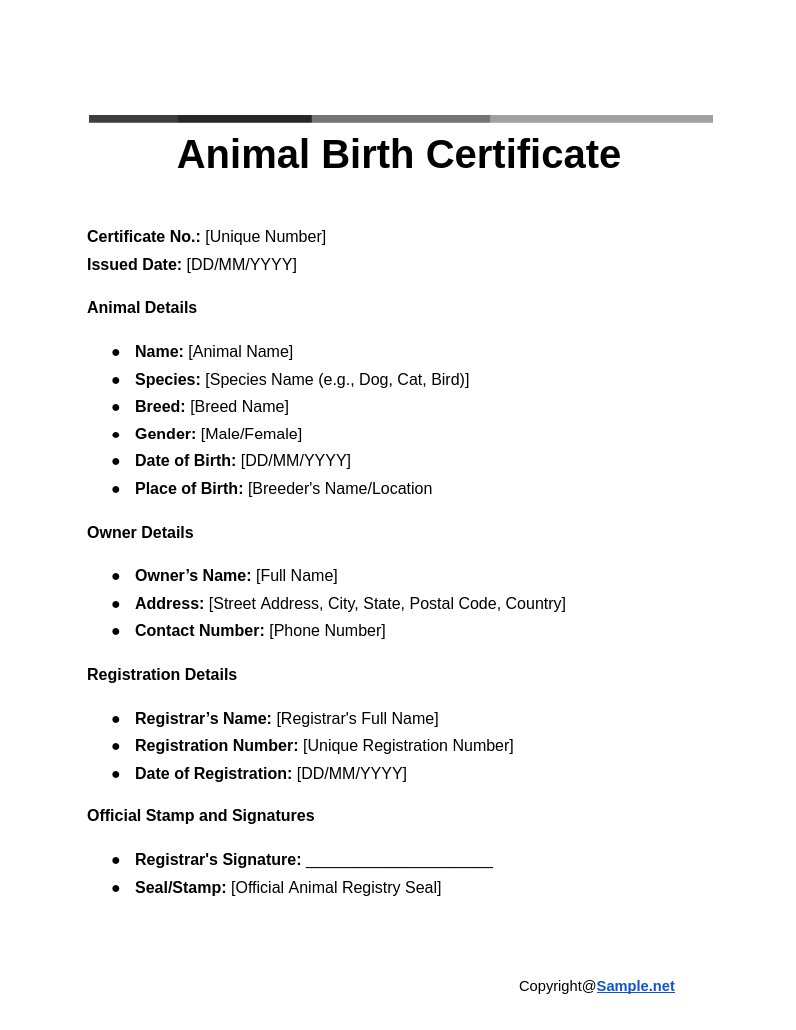
Animal Birth Certificate
download now -
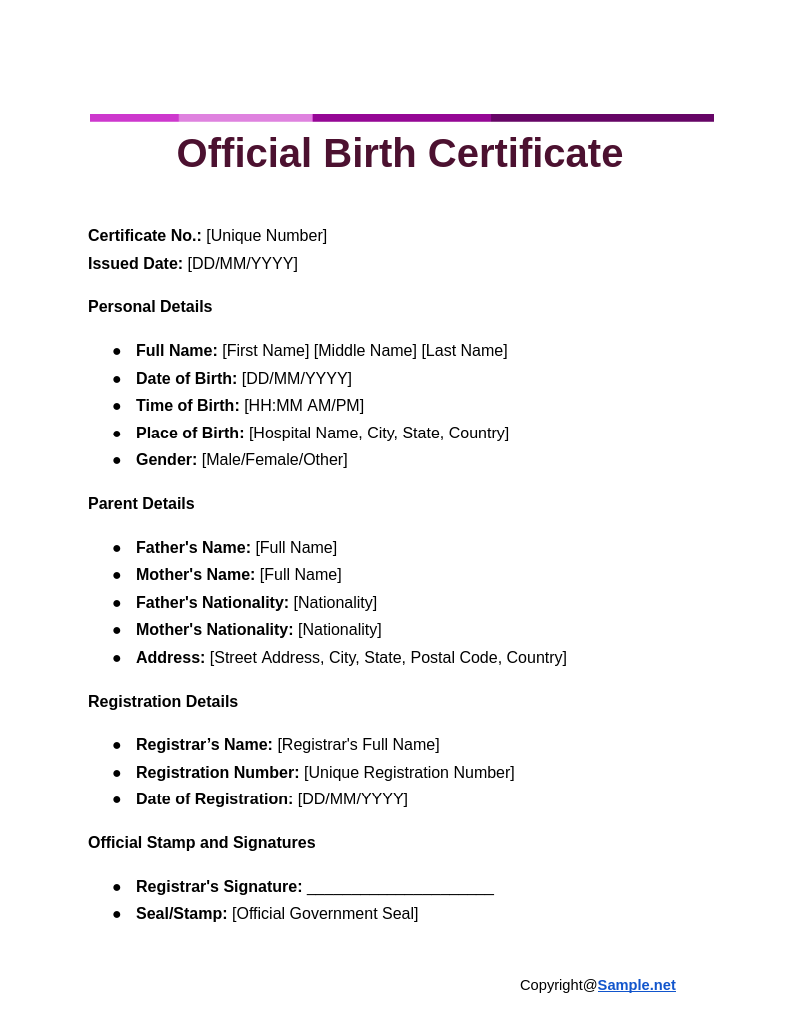
Official Birth Certificate
download now -
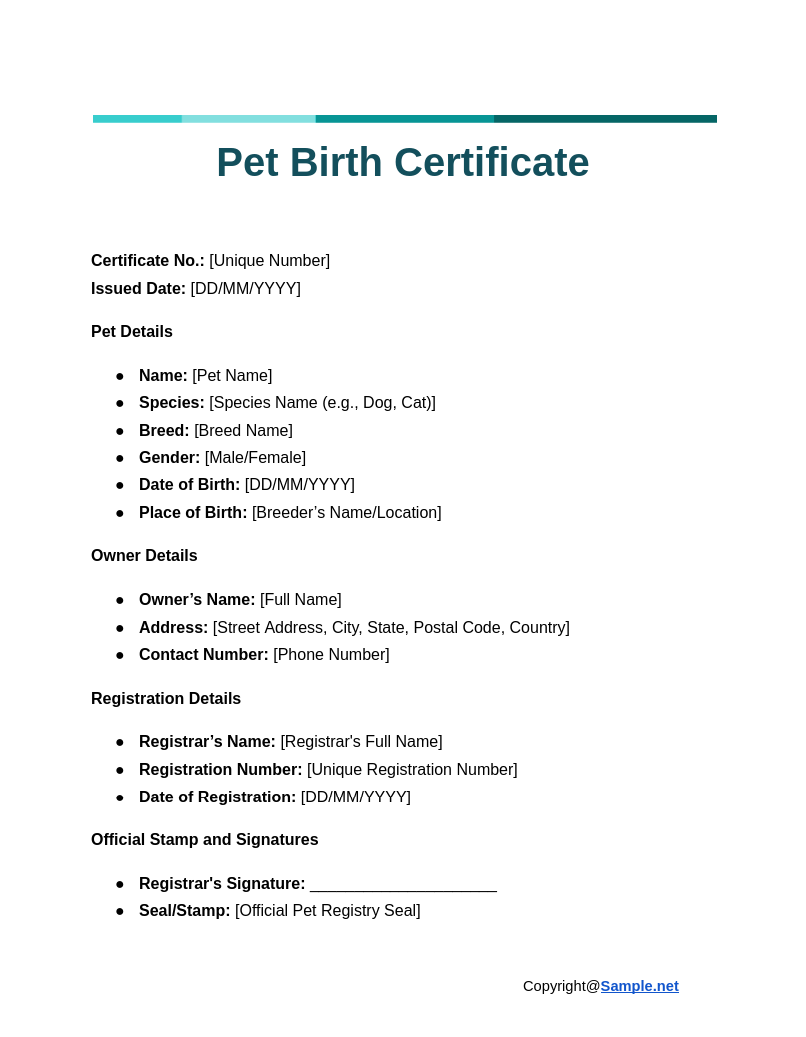
Pet Birth Certificate
download now -
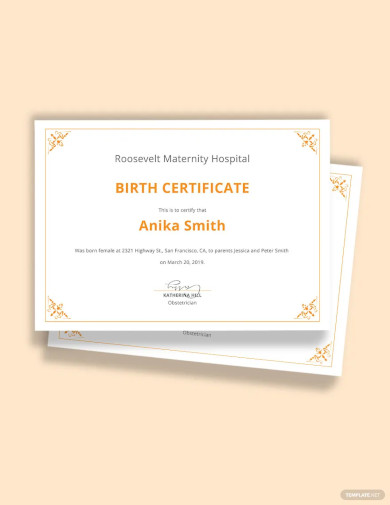
Official Birth Certificate
download now -
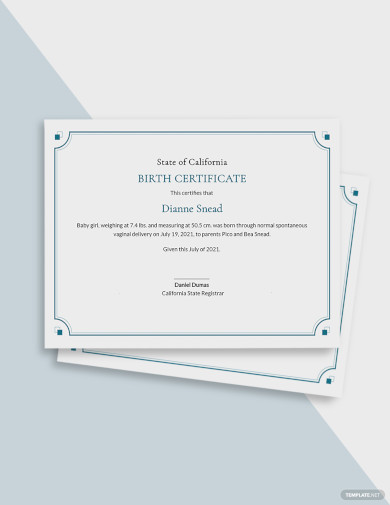
Blank Birth Certificate Template
download now -
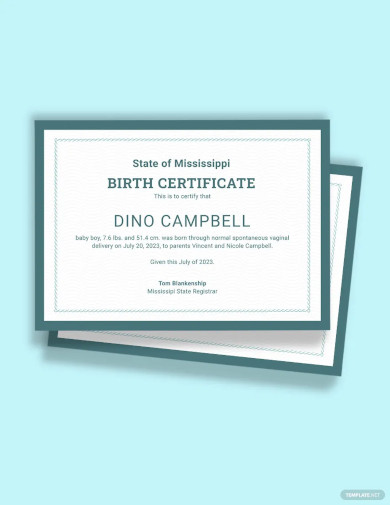
Basic Birth Certificate Template
download now -
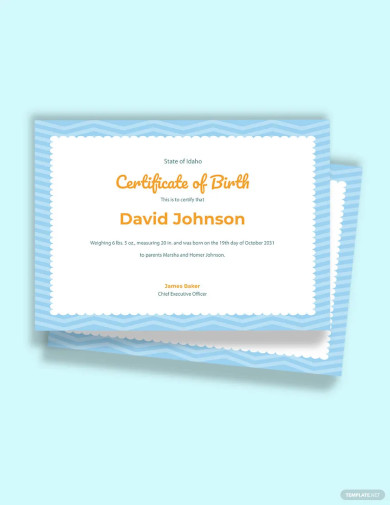
Boy Birth Certificate Template
download now -
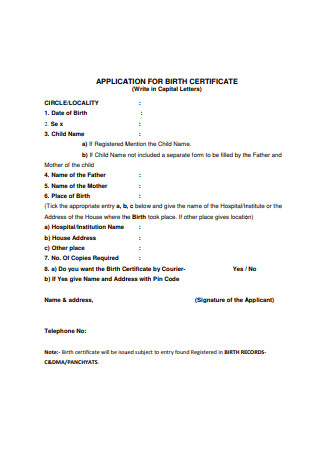
Application for Blank Birth Certificate
download now -
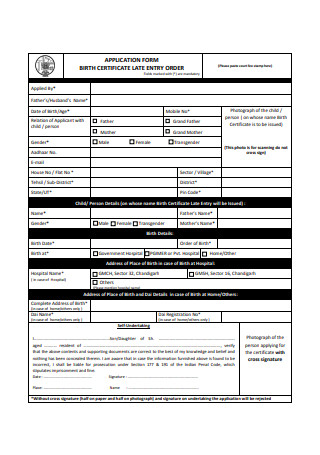
Hospital Birth Certificate Application Form
download now -
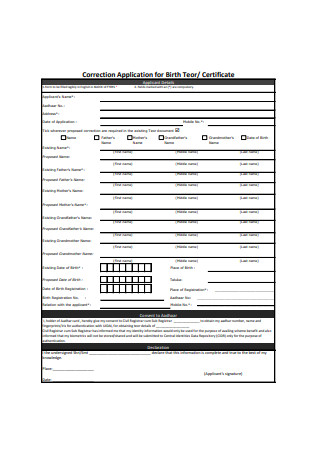
Application for Baby Birth Certificate Format
download now -
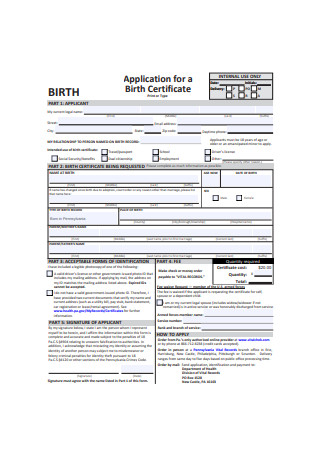
Original Application for Birth Certificate Sample
download now -
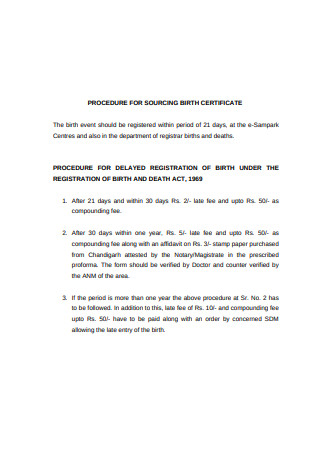
Official Birth Certificate Sample
download now -
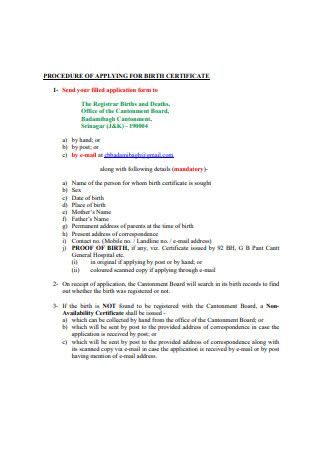
School Project Birth Certificate Procedure
download now -
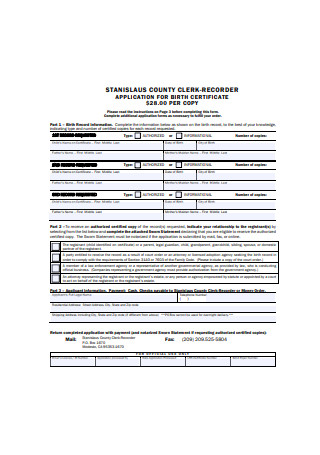
Application for Boy Birth Certificate Example
download now -
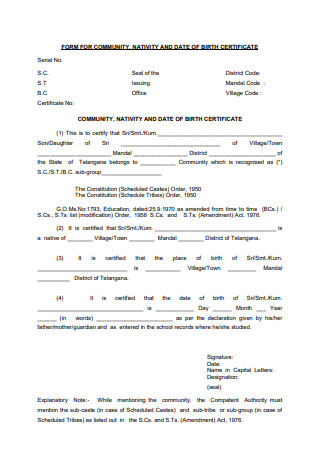
Sample Girl Birth Certificate
download now -
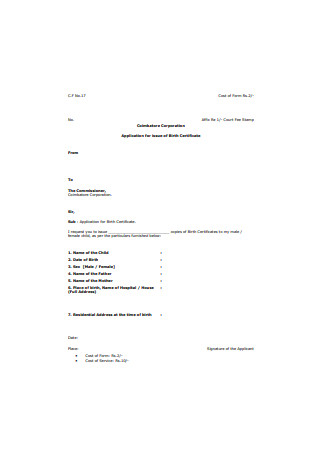
Application for Issue of Birth Certificate
download now -
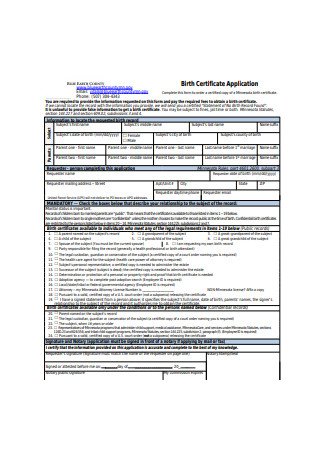
Birth Certificate Old Application Example
download now -
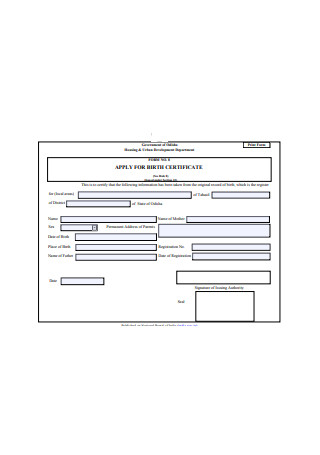
Basic Birth Certificate Long Form Format
download now -
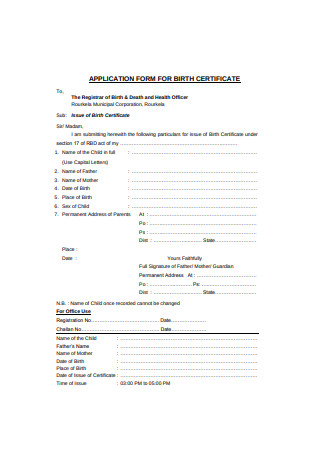
Sample Application Form for Cute Birth Certificate
download now -
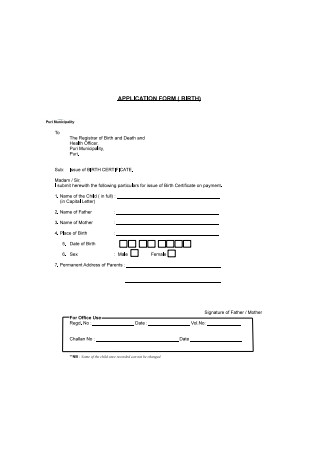
Birth Certificate Registration Application Form Sample
download now -
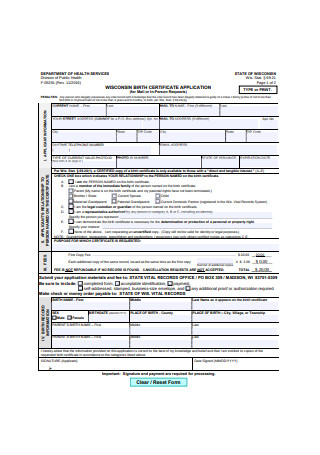
Standard Digital Birth Certificate Application Form
download now -
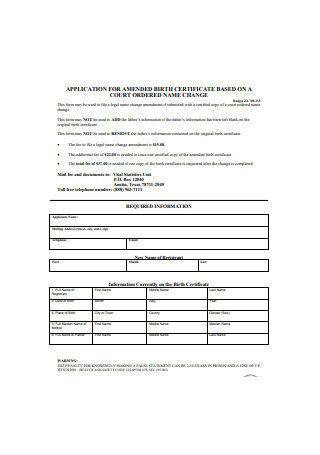
Application for Translation Amended Birth Certificate
download now -
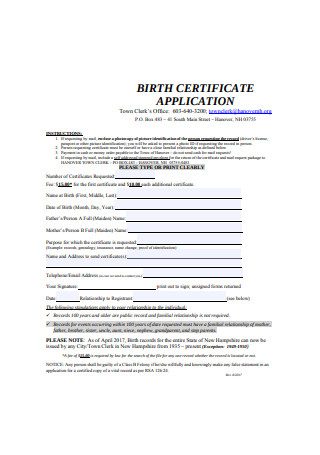
Passport Birth Certificate Request Form
download now -
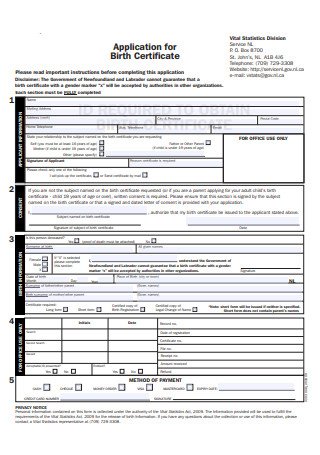
Standard Application for Birth Certificate
download now -
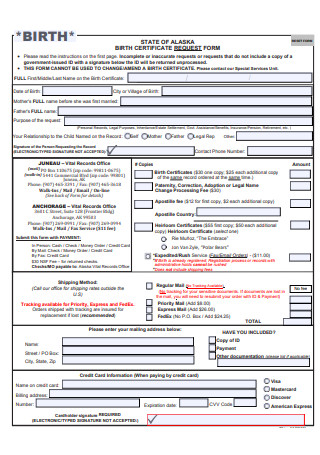
Birth Certificate Request Form Sample
download now -
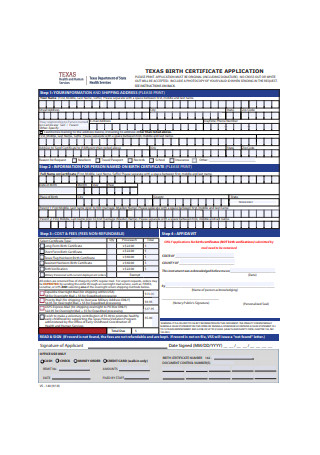
Printable Birth Certificate Application Form
download now -
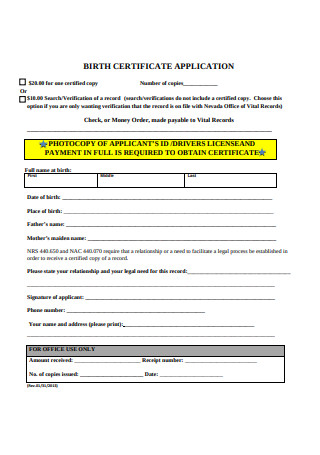
Simple Birth Certificate Application Form
download now -
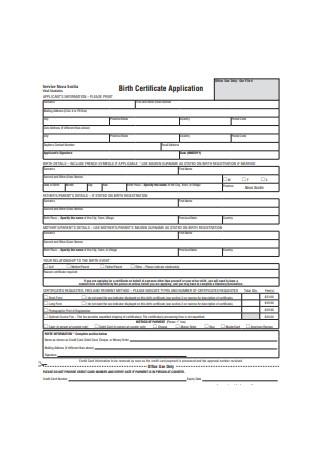
Sample Birth Certificate Application Format
download now -
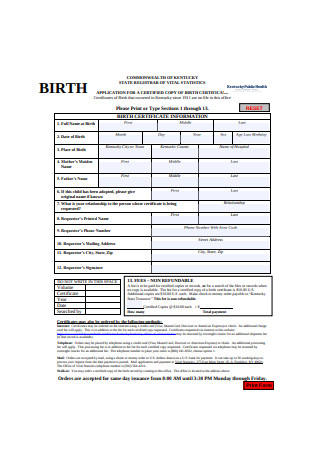
Basic Birth Certificate Example
download now -
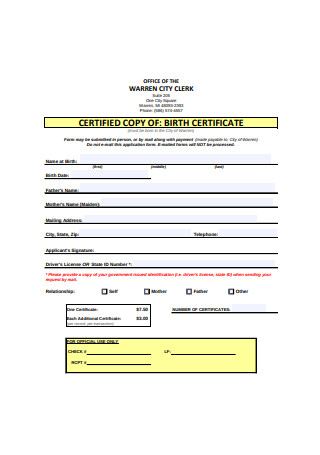
Standard Birth Certificate Format
download now -
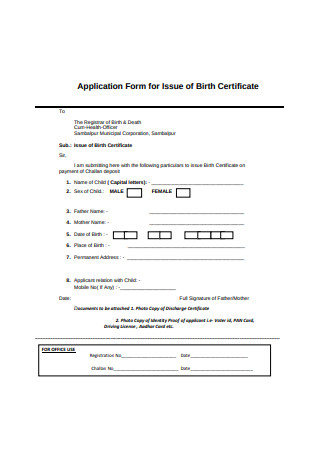
Application Form for Issue of Birth Certificate Sample
download now -
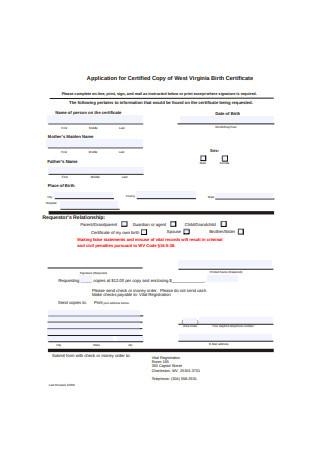
Sample Birth Certificate Application Example
download now -
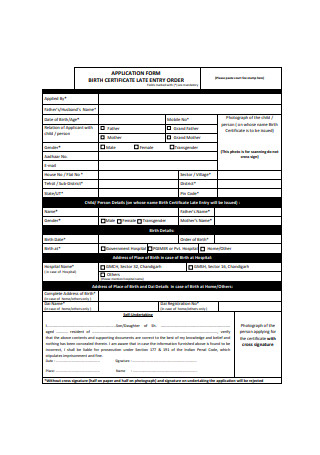
Birth Certificate Form
download now -
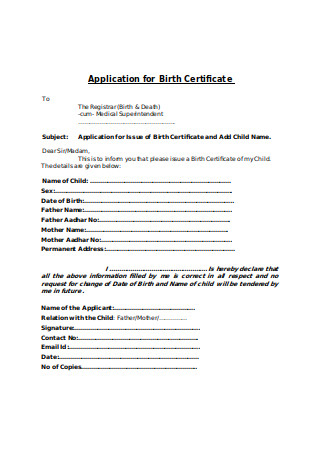
Basic Application for Birth Certificate
download now -
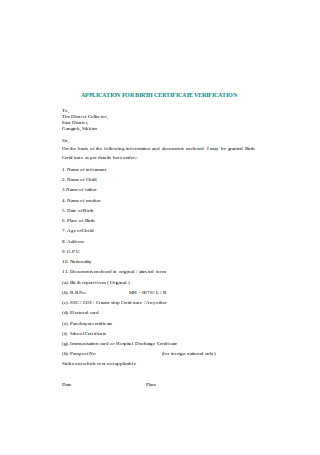
Application for Birth Certificate Verification
download now -
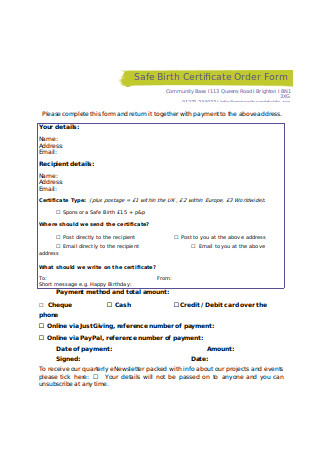
Birth Certificate Order Form
download now -
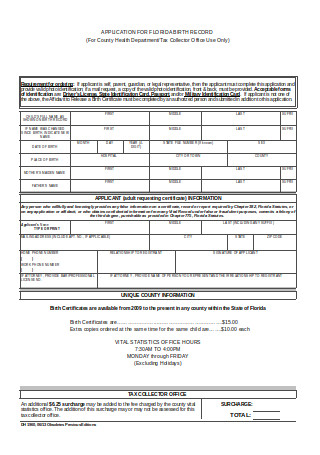
Sample Birth Certificate Application Form
download now -
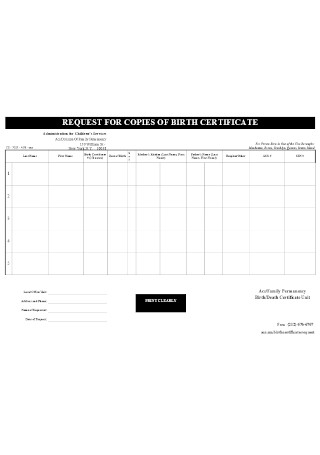
Sample Request of Copies of Birth Certificate
download now
FREE Birth Certificate s to Download
Birth Certificate Format
Birth Certificate Samples
What is a Birth Certificate?
Purposes of a Birth Certificate
How Do You Obtain a Birth Certificate?
FAQS
Who can apply for a birth certificate?
How does a birth certificate affect citizenship?
What happens if a birth is not registered?
What details are included in a birth certificate?
Why is a birth certificate important for legal processes?
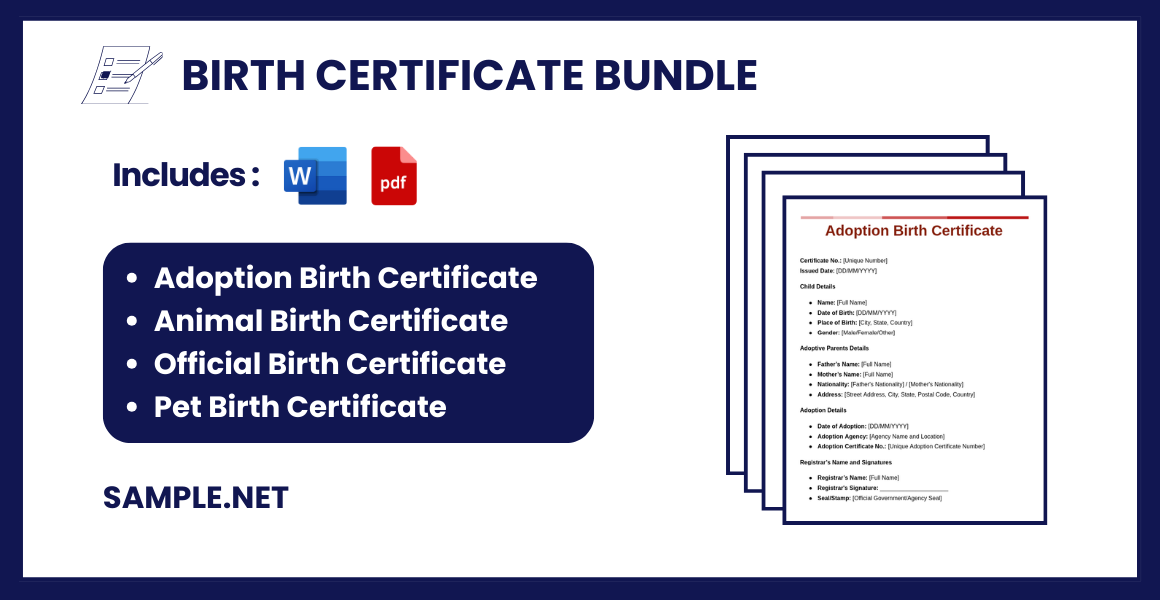
Download Birth Certificate Bundle
Birth Certificate Format
Certificate No.: [Unique Number]
Issued Date: [DD/MM/YYYY]
Personal Details
- Full Name: [First Name] [Middle Name] [Last Name]
- Date of Birth: [DD/MM/YYYY]
- Time of Birth: [HH:MM AM/PM]
- Place of Birth: [Hospital Name, City, State, Country]
- Gender: [Male/Female/Other]
Parent Details
- Father’s Name: [Full Name]
- Mother’s Name: [Full Name]
- Father’s Nationality: [Nationality]
- Mother’s Nationality: [Nationality]
- Address: [Street Address, City, State, Postal Code, Country]
Registration Details
- Registrar’s Name: [Registrar’s Full Name]
- Registration Number: [Unique Registration Number]
- Date of Registration: [DD/MM/YYYY]
Official Stamp and Signatures
- Registrar’s Signature: _____________________
- Seal/Stamp: [Official Government Seal]
Additional Notes (if any):
[Optional remarks or certifications]
What is a Birth Certificate?
A birth certificate is an official document issued by a government authority that certifies the birth of a child. It serves as the primary record of a person’s existence and legal identity. Typically, it contains information such as the full name, date and time of birth, place of birth, and details of the parents. It is often required for various administrative, legal, and personal processes throughout life. You can also see more on Affidavit of Birth.
Purposes of a Birth Certificate
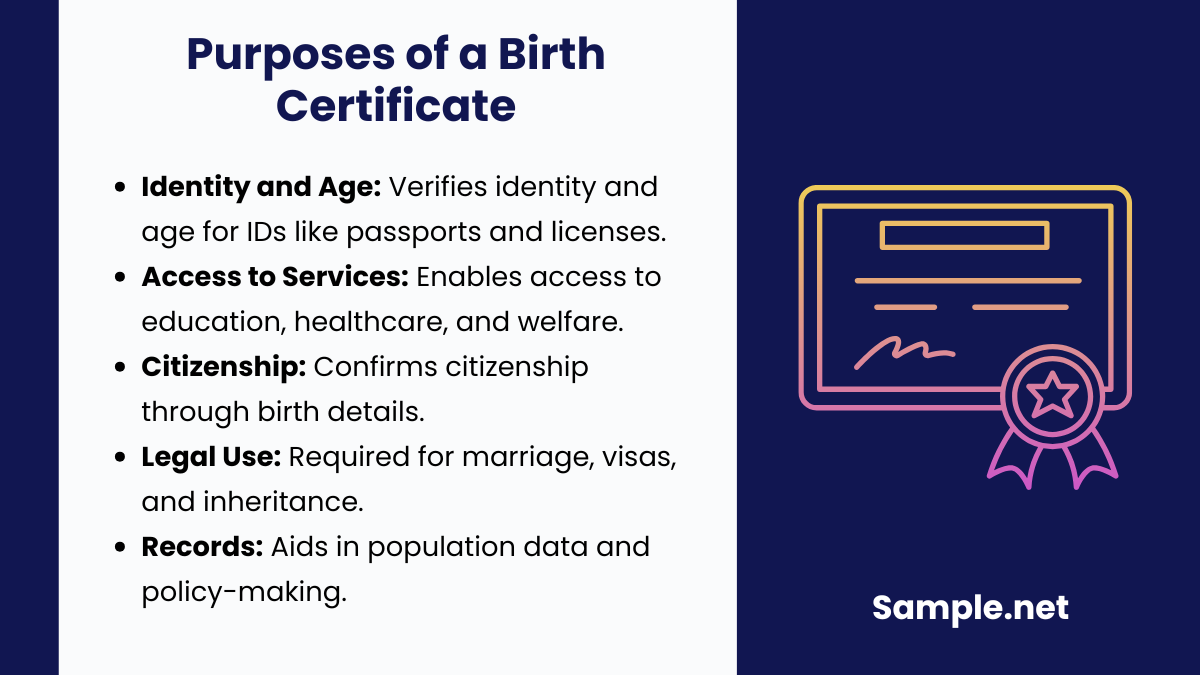
1. Proof of Identity and Age:
A birth certificate establishes a person’s identity and age, serving as a fundamental document for legal recognition. It is often required for obtaining government-issued identification, such as passports, driver’s licenses, and social security numbers.
2. Access to Rights and Services:
It ensures access to essential services like education, healthcare, and social welfare programs. Many institutions require it as proof of age and identity during enrollment or application processes. You can also see more on Pet Birth Certificate.
3. Establishing Citizenship:
The document confirms an individual’s citizenship status, as it records the place of birth and parental information. This is crucial for obtaining legal rights tied to nationality.
4. Legal and Administrative Uses:
A birth certificate is a critical requirement for numerous legal processes, such as registering for marriage, applying for a visa, or claiming inheritance. It serves as a formal record in disputes or legal claims.
5. Statistical and Governmental Records:
Governments use birth certificates for demographic studies, population planning, and policy-making. Accurate records help maintain a reliable database for public administration. You can also see more on Death Certificate.
How Do You Obtain a Birth Certificate?
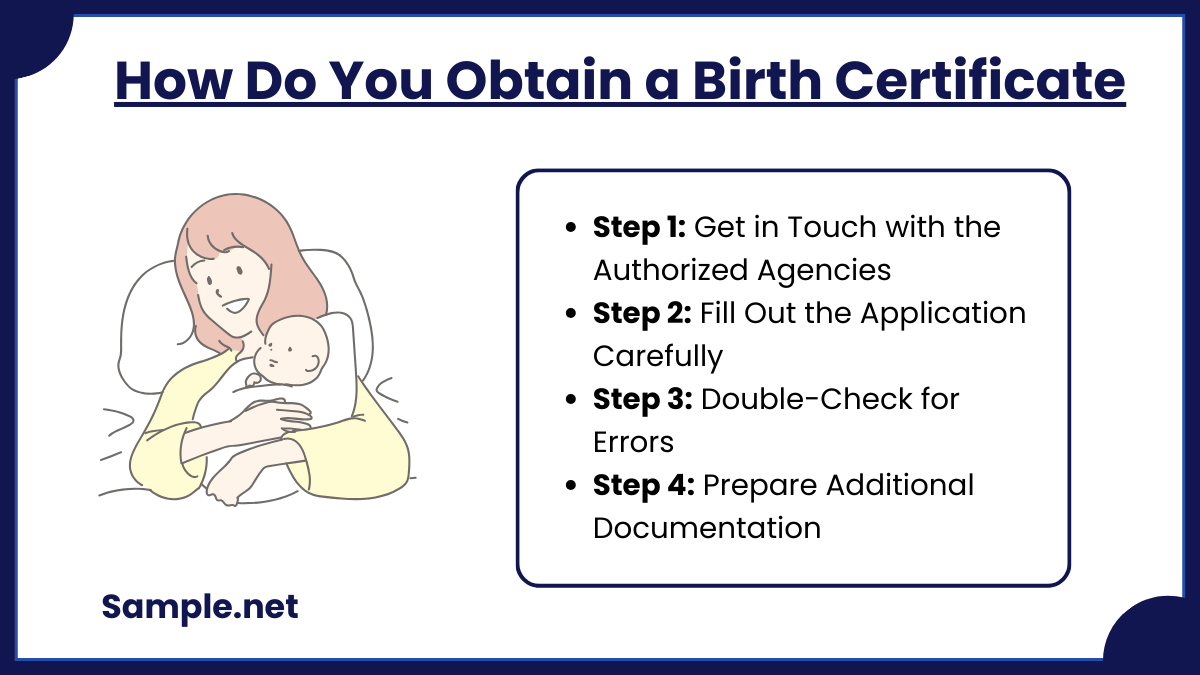
There are various instances when you’ll find yourself in need of a birth certificate. Perhaps you need an extra copy for your employment application, or maybe you lost the document in a house fire not too long ago. But because these documents contain sensitive information about an individual, they are not accessible for public use. You will have to undergo a series of steps to get a new birth certificate from the health department or the appropriate government office.
Step 1: Get in Touch with the Authorized Agencies
Although you might already have a birth certificate available from when you were born, it’s not something you want to give to a recruiter upon employment. Instead, you’ll want to consider ordering one from the Statistics Office. But birth certificates are not the most accessible document to obtain, as it does take time, money, and effort to process. You may have to face the long, grueling lines at the proper government offices to get one. Fortunately, many third-party service providers can do it for you at an additional fee. It’s the fastest and most convenient alternative available, but you have to be careful about who you consult. The company must have the proper permit to process this document on your behalf, so make sure you have this verified first. You can also see more on Certificate of Incumbency.
Step 2: Fill Out the Application Carefully
Many agencies provide print forms and online forms that you can use to order a birth certificate. You can download a copy of the order form through their website, or visit their office to have it processed in person. Simply follow the instructions indicated in the form and fill it with your data. If there are parts of the form that confuse you, don’t hesitate to ask for help from a representative who’ll be happy to assist you.
Step 3: Double-Check for Errors
Be extra careful when filling out a form. In addition to your personal information, the form may also ask for your updated contact list for further confirmation. The last thing you want is to redo the entire process after a few mistakes from the last one caused you problems. Getting your mother’s name or your birthdate wrong can already be a hassle to correct the next time. Thus, it’s best to review every bit of information before handing in your form.
Step 4: Prepare Additional Documentation
While it’s not always necessary, some agencies may request a valid ID or a notarized statement to verify your identity and proceed with the certificate’s issuance. You may want to contact the agency for these requirements prior to visiting their office, or you can check their website for guidelines to answer any frequently asked questions. Failure to provide the necessary papers will likely make it difficult for you to get approval. You can also see more on Project Completion Certificate.
It counts to know what a birth certificate is and why you need one, particularly when you enter adulthood, and the document becomes more significant than ever. Hence, you don’t want to take your birth certificate for granted. Keep the guidelines above in mind, and you should spare yourself from the trouble.
A birth certificate is more than just a record; it’s a gateway to identity, rights, and opportunities. From education to travel, this essential document ensures access to services and legal recognition. Its significance underscores the importance of safeguarding this critical piece of personal documentation throughout one’s lifetime. You can also see more on Certificate Of Employment.
FAQS
Who can apply for a birth certificate?
Parents, legal guardians, or the individual themselves (if of legal age) can apply for a birth certificate. Requirements may vary by jurisdiction. You can also see more on Certificate of Completion.
How does a birth certificate affect citizenship?
A birth certificate establishes a person’s citizenship by recording the place of birth and parental details. This is crucial for obtaining legal rights and services tied to nationality.
What happens if a birth is not registered?
Failure to register a birth can result in difficulties accessing education, healthcare, and government services. Late registration processes are available but may involve additional documentation and fees. You can also see more on Certificate Of Origin.
What details are included in a birth certificate?
Typically, it includes the individual’s full name, date and time of birth, place of birth, and parents’ names. Some jurisdictions may include additional details, such as gender and nationality.
Why is a birth certificate important for legal processes?
It serves as the primary legal proof of identity and age, required for processes like property claims, marriage registration, and employment verification. Without it, accessing rights can become challenging. You can also see more on Certificate of Achievement.
